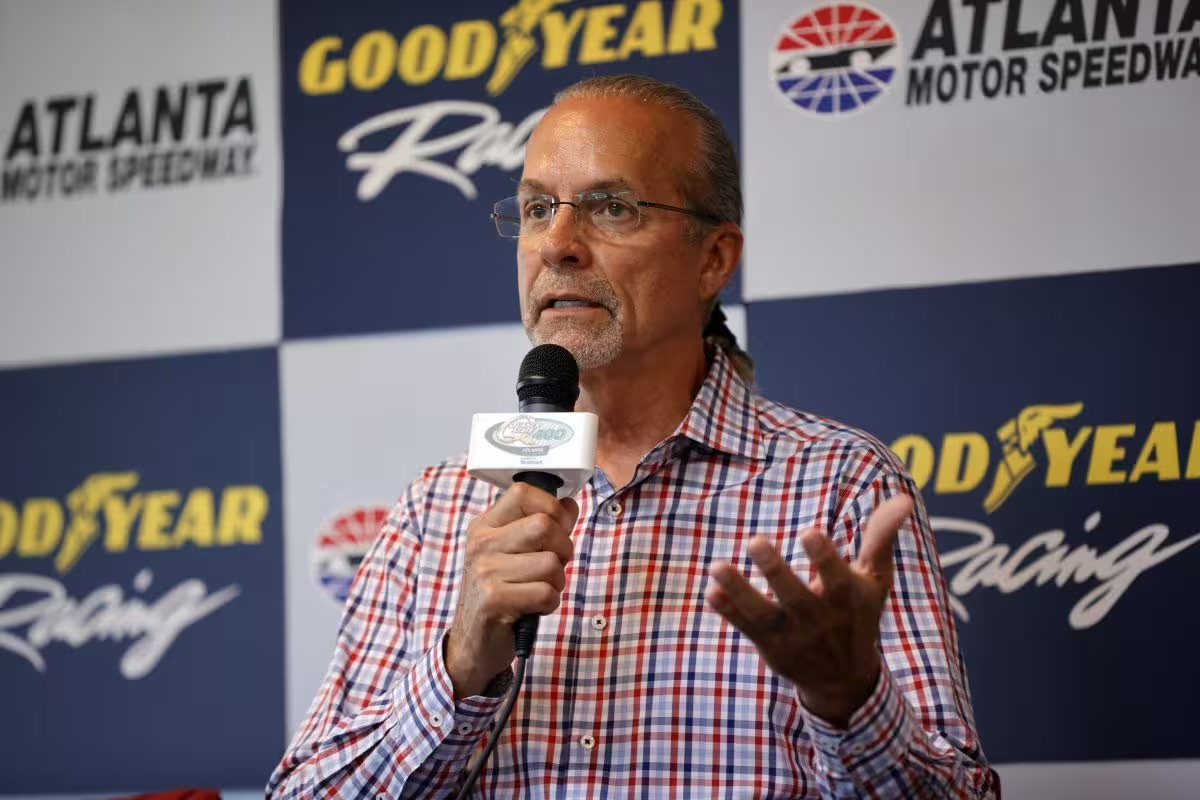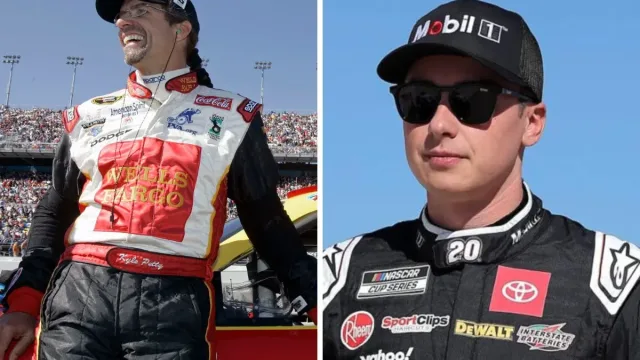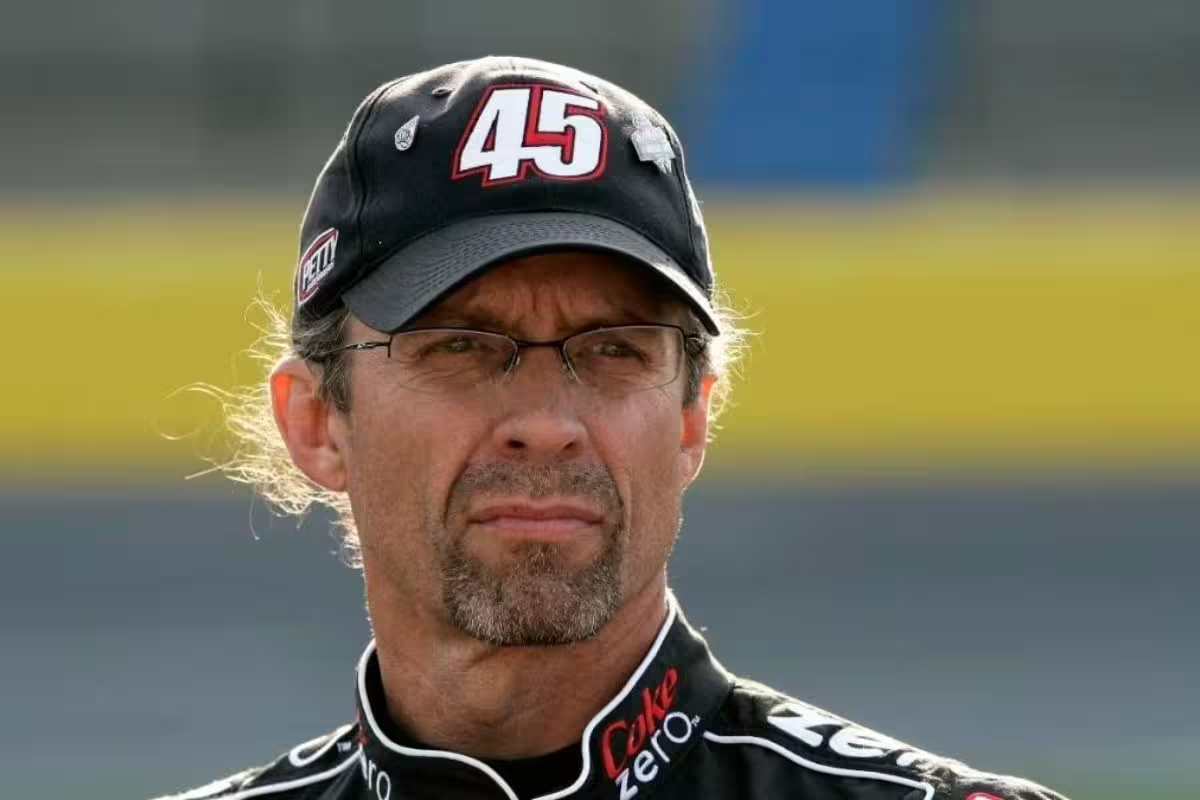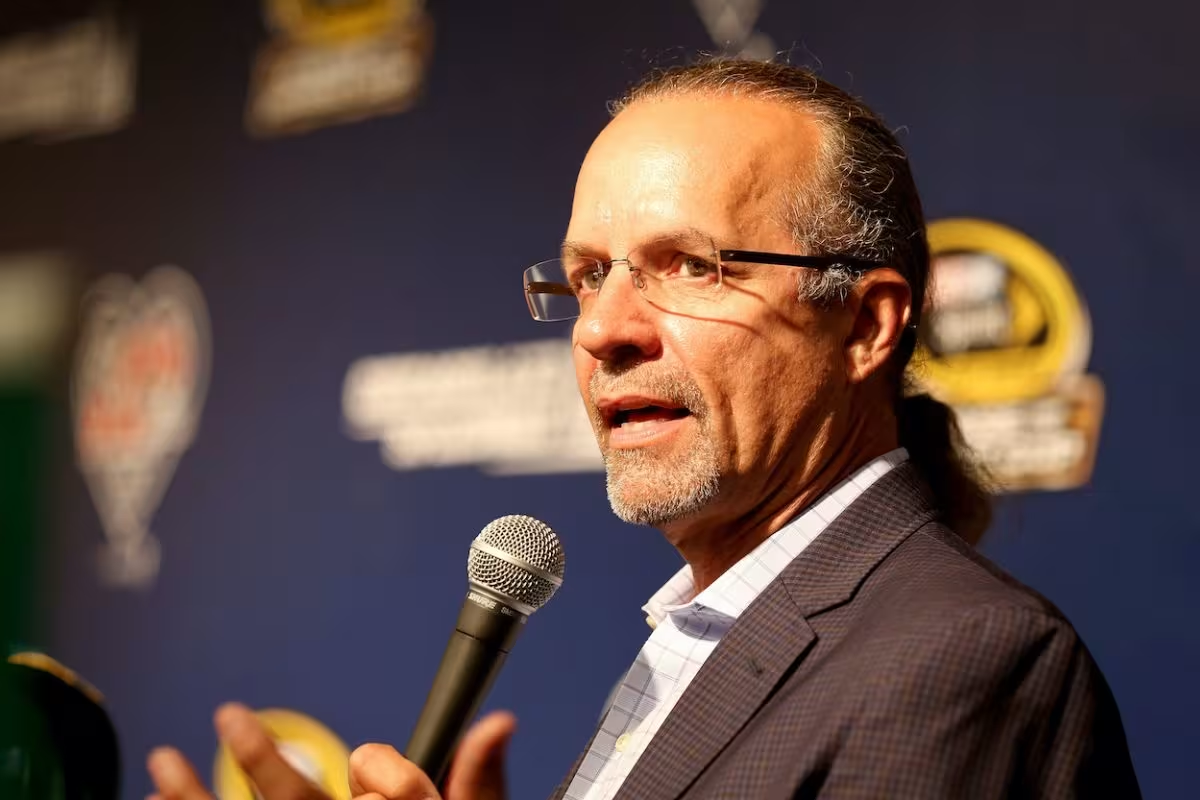Kyle Petty defends NASCAR’s controversial decision to penalize Christopher Bell, saying that it’s important to keep the sport fair. This penalty came from actions after the Martinsville race and changed the NASCAR playoff standings, helping William Byron move forward. Kyle Petty also responds to critics by explaining the complicated racing rules, including a new wall-ride rule designed to stop certain risky tactics from becoming too common in NASCAR. He stresses that rules like these are necessary to protect the integrity of the sport.
Key Highlights
- Kyle Petty praised NASCAR’s penalty against Christopher Bell for enhancing competitive integrity within the sport.
- The penalty significantly shifted the NASCAR playoff landscape, allowing William Byron to advance in the standings.
- Petty addressed critics, clarifying misconceptions about racing rules, particularly the legality of blocking maneuvers.
- The introduction of the wall-ride rule was a proactive measure to maintain racing integrity after Ross Chastain’s controversial move.
- NASCAR’s decision regarding Bell’s penalty was deemed non-appealable, reinforcing strict enforcement of rules for all competitors.
Kyle Petty Praises NASCAR’s Decision to Penalize Christopher Bell
In the wake of the Martinsville race, Kyle Petty articulated his endorsement of NASCAR’s decision to penalize Christopher Bell, a move that greatly impacted the NASCAR playoff landscape. Petty’s endorsement came through a post on X, where he stated, “NASCAR got it right! William Byron to Phoenix to race for the championship!” This comment highlights the significance of the decision not only for Bell but for the competitive integrity of the NASCAR playoffs.
The penalty against Bell, which ultimately removed him from NASCAR playoff contention, was a pivotal moment that allowed William Byron to advance to the NASCAR Championship 4. Petty’s support showcases a broader sentiment within the NASCAR community regarding the enforcement of rules and the importance of maintaining a level playing field. By praising NASCAR’s actions, Petty stresses the necessity of accountability in the sport, which is essential for sustaining its credibility in the eyes of fans and stakeholders alike.

Furthermore, Petty’s comments reflect an understanding of the complex dynamics at play in the NASCAR playoffs. The decision to penalize Bell was not merely punitive; it was a reaffirmation of NASCAR’s commitment to its regulations and the competitive balance that defines the sport.
Byron’s advancement alongside other notable drivers such as Ryan Blaney, Joey Logano, and Tyler Reddick demonstrates the high stakes involved in each race. As the NASCAR playoff narrative unfolds, Petty’s endorsement serves as a reminder of the delicate balance between competition, fairness, and the integrity of NASCAR as a premier motorsport organization.
Kyle Petty Responds to Critics of His Position
Frequently engaging with his audience on social media, Kyle Petty took the opportunity to respond to critics who challenged his support for NASCAR’s recent decision regarding Christopher Bell. In a clear and direct manner, Petty articulated his position, addressing the misconceptions surrounding the rules governing racing behavior. His remarks on the platform X were both pointed and informative, as he sought to clarify the nuances of NASCAR’s regulations.
“I’m not arguing tonight because I don’t feel like dealing with some of you honestly.”
“1st there is no rule against blocking and manufacturers have been working together for years! (See Daytona and Talladega) 2nd wall ride is against the rules, that’s a fact. Conversation over…” – Kyle Petty
Petty emphasized that blocking is not explicitly prohibited within the current rule framework, noting that cooperation among manufacturers has long been a vital element of racing, particularly at tracks like Daytona and Talladega. This context is essential, as it highlights the tactical nature of racing, which often involves collaboration between teams to gain competitive advantages.
However, he firmly stated that the act of wall riding, which has garnered considerable debate, is indeed against the rules—a fact he reiterated to conclude the conversation.
His response reflects a deeper understanding of the regulatory landscape in NASCAR, revealing the complexities that surround racing maneuvers. By dismissing the notion of engaging in a protracted argument, Petty positioned himself as a knowledgeable advocate for clarity in racing regulations.
NASCAR Introduced the Wall-Ride Rule after Ross Chastain’s 2022 Move
NASCAR’s introduction of the wall-ride rule marked a remarkable shift in the sport’s regulatory framework, directly influenced by Ross Chastain’s controversial “Hail Melon” maneuver during the 2022 season. This bold move allowed Chastain to utilize the wall to gain momentum and secure a coveted spot in the NASCAR Championship 4, prompting considerable discussion among drivers and officials. In response, NASCAR aimed to curtail the potential for wall-riding to become a mainstream strategy, particularly during critical race moments.
Elton Sawyer, NASCAR’s vice president of competition, emphasized that the implementation of the wall-ride rule was not merely reactionary but a proactive measure. Conversations with drivers highlighted a collective concern that such tactics could undermine the integrity of racing, leading to a consensus against making wall-riding a standard practice in last-lap scenarios.
“We look at all the video. As I back up on that, you go back two years ago when we had the situation with Ross here,”
“We went to Phoenix. There was a lot of dialogue with the drivers that that’s not a move that we want to have to make on the last lap. We were able to get through Phoenix and had a great championship race that year.”
“In the off-season meeting with the industry, meeting with our drivers, and to a man that was not a move that they want to have to make. There was language in the rule back. When you look at it today, clearly got up against the fence there in three and four, and rode the fans all the way off four there.” – Elton Sawyer
As NASCAR evolves, the wall-ride rule exemplifies the balance between innovation in racing and the preservation of traditional competitive principles, ensuring that the sport remains engaging and equitable for all participants.
Elton Sawyer Explains the Non-Appealable Nature of Bell’s Penalty
The enforcement of rules in NASCAR is pivotal for maintaining the integrity of the sport, as demonstrated by the recent discussions surrounding penalties. Elton Sawyer, NASCAR’s Senior Vice President of Competition, provided clarity on the non-appealable nature of Christopher Bell’s recent penalty, categorizing it explicitly as a “race violation.” This classification emphasizes the rigidity of NASCAR’s regulatory framework, which designates specific infractions that cannot be contested through the appeals process.
Sawyer elaborated, stating, “Race violations, you don’t protest them. It’s not appealable, I should say.” This statement clarifies the rationale behind such penalties, aligning them with other infractions like uncontrolled tires or exceeding the number of crew members over the wall during pit stops.
The decision to classify Bell’s infraction as a race violation reinforces NASCAR’s commitment to consistent enforcement and the necessity of adhering to established rules. By establishing clear boundaries and consequences for specific actions on the track, NASCAR aims to deter similar violations in the future, thereby enhancing the entire competitive environment.
News in Brief: Kyle Petty Defends NASCAR’s Controversial Decision
Kyle Petty’s defense of NASCAR’s penalty against Christopher Bell highlights the organization’s commitment to maintaining competitive integrity. The introduction of the Wall-Ride Rule following Ross Chastain’s controversial maneuver demonstrates a proactive approach to rule enforcement.
Elton Sawyer’s clarification regarding the non-appealable nature of the penalty further stresses the league’s determination to uphold its regulations. This incident showcases the ongoing evolution of NASCAR’s governance and the challenges associated with enforcing fairness in high-stakes racing environments.
ALSO READ: Kyle Petty Rips Denny Hamlin for His Bizarre Decisions That Cost Him the Miami Race


